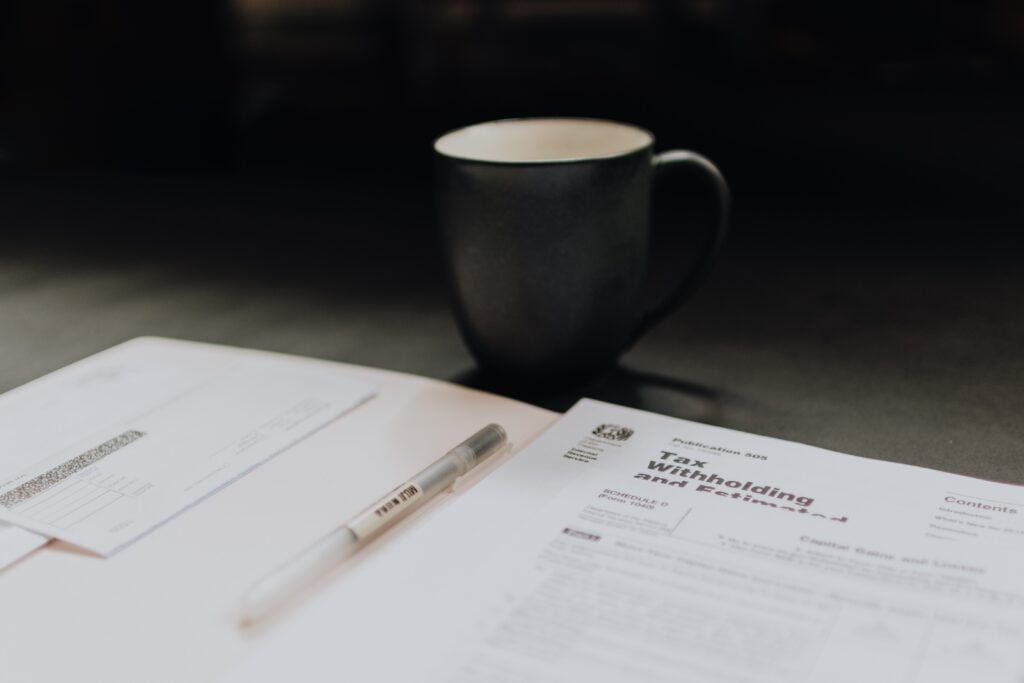How To Avoid Paying Council Tax
Council Tax is a mandatory, property value-based bill paid to local councils by homeowners and renters. The official tax payment schedule requires 10 monthly instalments to be made, residents may request their local council offices to convert these to 12 instalments as well. This reduces the amount to be paid per month; thus reducing the amount to be paid each month and making payments convenient for residents.
How To Avoid Paying Council Tax?
You cannot avoid paying council tax unless you are qualified for exemption by your local council office. For this purpose one needs to apply for formal exemption and only when the local council approves this, can council tax be avoided. However, there are specific criteria that need to be met to avail of this benefit. These will be discussed in detail as we proceed further with exploring the topic.
In certain situations, individuals may qualify for a council tax reduction; but for that too, a formal application needs to be filed with the local council office. Based on the council’s assessment and approval, residents may qualify for a discount on their council tax bill.
Through this article, we will try to understand more about council tax eligibility, exemptions and discounts, by discussing the following:
- what is council tax?
- who pays council tax?
- why is there no flat rate of council tax?
- how to get council tax reduction?
- how to get exemption from council tax?
- what happens if someone does not pay their council tax?
What Is Council Tax?
First introduced in 1993, Council Tax is a bill levied upon properties in England, Wales and Scotland and is paid by owners or tenants to their local council office. It is essential that the resident(s) of the said properties are above the age of 18 and are not full-time students. They may be working, unemployed or studying part-time.
Listing Officers from the Valuation Office Agency are responsible for the assessment of properties on the basis of their market value; keeping the year 1993 as the time period of assessment. This backdated assessment keeps the amount of council tax bills much reduced as inflation and rising housing prices are not considered.
The local council office maintains a list of all the houses in their area. Once the Valuation Office Agency (VOA) shares their value assessment, council tax bills for the next year are prepared and sent out to residents on April 1st each year.
Payments are required in 10 monthly instalments up to the month of January of the next year; with February and March being tax-free months. However, residents have the right to opt for making full payment in advance and thus qualify for a discount as per their local council’s discretion.
Who Pays Council Tax?
Council Tax is a combination of a personal and property tax mandatory upon anyone above the age of 18 years, occupying a home. In the case of multiple occupants of a residence, one person is liable to pay council tax. In the case of partners or spouses sharing a home, both of them are jointly and severally liable to pay council tax bills. Unless residents receive a council tax bill in their name, no payment is required.
Why Is There No Flat Rate Of Council Tax?
It is essential to know why everyone does not pay the same amount of council tax. Some of the reasons are discussed below:
- Council tax is a property-based tax:
This means that the Valuation Office Agency assesses the market value of properties within a council and shares their evaluation with the local council office. Depending on their market value in 1993, the condition of the premises, the structure of the house, each home may be assigned a different value; thus causing a variation in the council tax bill.
- Council tax is billed according to bands:
There is a range of values starting from £40,000 that are assigned to homes. There are eight bands starting from A and ending at that are assigned according to the values of properties. As the values of properties increase, so does their assigned band. The higher the assigned band, the higher the amount of council tax to be paid.
- Council tax is affected by changes in bands:
If there are any changes made to a property such as the addition of a room, modification to its structure, demolishment of a certain area, etc and these changes cause a significant change in the value of the property; it will have a direct impact on the amount of council tax being charged. Any modification in a property that requires revaluation of the premises, may possibly change the allocation of its council tax band that was previously assigned. Depending upon the appreciation or depreciation in the value of the property, the new council tax bill may be of a higher or lower amount.
To check your council tax band, click here Check your Council Tax band
How To Get Council Tax Reduction?
In case of any of the following circumstances, individuals may be able to pay a reduced amount on their council tax bills:
- If someone lives alone
- If they are disabled
- If they are on low income
- If they are on state benefits
If someone lives by themselves in a house, they are eligible for a 25 per cent discount on their council tax bills. The same rule applies in case they are the only adult living on the said premises. This means that even if there are other occupants, they are younger than 18 years of age.
If all the residents of a property are under the age of 18 years, they become eligible for a 50 per cent reduction in their council tax bill.
To qualify for a 100 per cent reduction, all the occupants of the household must be full-time students.
To find out your eligibility status as per the local council scheme in your area, click here Apply for Council Tax Reduction
How To Get Exemption From Council Tax?
To be able to claim eligibility for exemption council tax payments, claimants must be able to fulfil the following criteria:
- the owner does not live in the said property and lives in a care home
- the owner is receiving hospital care at a medical facility
- the owner/tenant is temporarily living elsewhere to take care of someone
- the owner/tenant is in the armed forces and may be stationed away from the premises at times
- the owner/tenant is serving jail time prison (not for non-payment of council tax bills)
- the said property is/was registered by a charity and is not used for residential purpose
- the said property is an extension/annexe of a single property
- properties that have been repossessed
- properties that are purchased to be demolished
Further details about council tax exemption are available here: Properties exempt from council tax – Council tax discounts, reductions and exemptions – Newham Council
If an individual fulfils any of these criteria, they must contact their local council office and raise an appeal for council tax exemption.
What Happens If Someone Does Not Pay Their Council Tax?
If someone is unable to pay their council tax bills, they must contact their local council office immediately. They may be able to restructure the instalments from 10 monthly payments to 12. This reduces the amount to be paid each month; making payments smaller and more convenient. If they still believe that paying council tax bills exceeds their financial ability, they may request their local council office for a discount or temporary exemption. However, any decision is at the hands of the local council office and the council tax scheme that they follow.
However, if an individual stops paying their council tax bill without any prior notification to the council office, the council office will first send them a reminder to clear their dues within 7 days and if they don’t get a response after 3 reminders, they will impose an immediate payment of the annual tax to be paid in full on immediate basis.
Despite these reminders, if the individual continues to defer payments, the local council may have to take legal action against the defaulters. This may range from a legal demand for clearance of dues sent to the defaulter, to a bailiff who may visit the property and seize the defaulter’s valuables to the final and most severe action of a jail term of 3 months in prison.
Conclusion
Therefore, it may be concluded that since council tax is a mandatory payment to be paid to local councils, one may not be able to evade it under normal circumstances. To be eligible for any reduction or complete exemption from council tax bills, one needs to confirm their status by contacting their local council office. It is only on the basis of their approval that any such benefit may be legally availed by individuals. Deliberate avoidance of council tax payments may lead to legal action against the defaulters.
FAQs: How To Avoid Paying Council Tax?
Do some people pay no council tax?
Under certain situations, residents may not have to pay their council tax bills; however, the formal exemption must be approved by their local council office. If the resident of a property is in hospital care or an elderly home care service, they are exempted from paying their council tax bills. Similarly, if all the occupants are full-time students, they are not required to pay council tax bills.
Do you pay council tax if you are on universal credit?
Yes, if you are on Universal Credit, you are still required to pay your council tax bills. However, by showing evidence of universal credit, you may be eligible for a discount on your council tax bill. For instance, an individual of working age receiving universal credit qualifies for an 82.5 per cent discount on their council tax bill.
What happens if a tenant doesn’t pay council tax?
Non-payment of council tax is initially followed up with reminders from the local council office. However, after the third reminder, the council office may impose the payment of the complete bill in lump sum amount upon the defaulter. If this doesn’t work, they may send a legal demand for clearance of dues, followed by a bailiff who personally visits the property and possesses valuables that may cover the cost of the bill.
Do I pay council tax if on benefits?
If you are low on income or on benefits, you may be eligible for a council tax reduction. To learn more about the eligibility criteria and the amount of discount to be expected, one must contact their local council office.
What is classed as low income in the UK?
Households earning less than 60 per cent of the median income are said to be on low income. During 2018-19, the median income in the UL was £29,000 per annum for a couple with no children. Low-income households may qualify for a number of benefits and tax reductions. To apply for these discounts, they must contact their local council office.
References:



